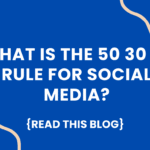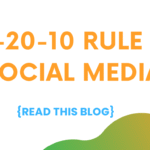
What is social media marketing?
Introduction to Social Media Marketing:
Social media marketing is a strategic approach that leverages social media platforms to promote products, services, or brands. This form of digital marketing enables businesses to engage directly with their audience, fostering relationships and community while enhancing brand visibility. In a landscape where users spend a considerable amount of time on social media, the importance of incorporating these platforms into marketing strategies cannot be overstated.
Table Of Content
The significance of social media marketing lies in its ability to create interactive communication channels. Unlike traditional marketing methods that often involve one-way communication, social media allows for real-time feedback and engagement. Businesses can share content that resonates with their target audience, encouraging shares, comments, and discussions. This interaction not only boosts brand awareness but also helps businesses cultivate loyalty among their customers by making them feel valued and heard.
Moreover, social media platforms such as Facebook, Instagram, Twitter, and LinkedIn provide a wealth of data analytics that can be advantageous for marketers. By analyzing user behavior and preferences, businesses can tailor their strategies to better align with audience interests, ensuring a higher return on investment (ROI). This adaptability makes social media marketing an essential component of any modern business strategy, as it allows companies to pivot according to consumer demand and market trends.
In summary, social media marketing represents a critical element within the digital marketing framework. Its ability to engage and connect with a broad audience, coupled with the analytical insights it offers, positions it as a necessity for businesses looking to thrive in today’s competitive landscape. As companies increasingly recognize the value of social media strategies, understanding the foundations and implications of this marketing approach becomes imperative.
The Evolution of Social Media Marketing:
The journey of social media marketing has transformed significantly since its inception in the early 2000s. Initially, social media platforms were primarily designed for personal interactions and community engagement. However, with the advent of Facebook in 2004 and Twitter in 2006, a shift began that would lay the groundwork for social media as a powerful marketing tool. Businesses started to recognize the immense potential these platforms held for reaching broader audiences and engaging with customers in a more direct and personal manner.
As social media platforms matured, so did their marketing capabilities. The introduction of analytics tools allowed companies to gauge user engagement, track campaign performance, and tailor their strategies more effectively. The emergence of Instagram in 2010, focused on visual content, and LinkedIn, catering to professional networking, further diversified the landscape of social media marketing. These new platforms enabled brands to adopt niche strategies aimed at specific demographics, thus enhancing the effectiveness of their campaigns.
User behavior has also evolved in response to the proliferation of social media. The shift from passive consumption to active engagement has altered how brands interact with consumers. Users are now seeking authentic connections and meaningful interactions with brands, prompting marketers to adapt their approaches. The trend towards content personalization, driven by sophisticated algorithms and detailed consumer data, has become critical for engaging users effectively. Moreover, the rise of mobile usage has necessitated that brands optimize their marketing strategies for a more fragmented audience, which often accesses content on-the-go.
In summary, the evolution of social media marketing reflects broader technological advancements and changing consumer preferences. As platforms continue to grow and user behaviors shift, businesses must remain agile, adapting their marketing strategies to stay relevant in this dynamic environment.
Key Components of Marketing:
Social media marketing comprises several essential components that collectively enhance a brand’s online presence and engagement with its audience. Understanding these key elements is vital for any effective social media strategy.
Content creation is fundamental in social media marketing. Quality content not only grabs the audience’s attention but also encourages interactions and shares. This includes various formats such as images, videos, blog posts, and infographics. Effective storytelling and a consistent brand voice through diverse content types can significantly elevate brand visibility and engagement levels.
Another critical aspect is audience engagement. Social media platforms provide a unique opportunity for brands to foster direct communication with their audience. Engaging content leads to interactions such as comments, shares, and likes, which can strengthen community bonds. Brands must actively respond to audience inquiries and involve them in conversations, making them feel valued and heard.
Brand awareness is a primary goal of social media marketing. Building recognition requires a strategic approach to consistent messaging and visual identity across all social platforms. Regularly sharing posts that reflect the brand’s values and mission can help establish a solid presence. Collaborations and partnerships with influencers and other brands can further amplify visibility and expand reach.
Analytics in social media marketing is essential for measuring the success of various strategies. Tools and metrics allow marketers to assess audience engagement, content performance, and overall campaign effectiveness. By analyzing this data, brands can make informed adjustments to their strategies, focusing on the types of content and platforms that yield the best results.
Finally, targeted advertising is a pivotal component of social media marketing. Paid ads can reach specific demographics tailored to a brand’s offerings, further enhancing engagement ratios. Through social media advertising, brands can achieve precise targeting based on user behavior, interests, and demographics, maximizing their marketing efficiency.
Benefits of Social Media Marketing:
Social media marketing offers numerous advantages that can significantly enhance a brand’s marketing strategy. A primary benefit is improved brand visibility. With billions of users actively engaging on various platforms, brands have the opportunity to showcase their products and services to a vast audience. For instance, a study by Hootsuite revealed that more than 94% of marketers reported increased exposure due to social media. By maintaining a prominent presence on these platforms, businesses can effectively reach potential customers and build brand awareness.
Another key advantage of social media marketing is the opportunity for direct customer interaction. Social media provides businesses with a channel to engage with their audience in real-time, responding to inquiries and gathering feedback promptly. This interaction fosters a sense of community among followers, not only enhancing customer loyalty but also creating brand advocates. For example, numerous businesses have successfully utilized social media platforms to address customer concerns swiftly, which has, in turn, improved their reputation and trustworthiness.
Cost-effectiveness is another significant benefit of leveraging social media for marketing. Compared to traditional advertising channels, social media campaigns can yield a higher return on investment (ROI) with lower costs. According to a survey by Buffer, 64% of marketers stated that their social media marketing efforts were either moderately or very effective. Furthermore, social media marketing allows for precise targeting of specific demographics. Marketers can utilize the advanced targeting features of social media platforms to reach users based on demographics, interests, and behaviors. This tailored approach enhances the likelihood of engaging users who are genuinely interested in the brand’s offerings, ultimately leading to higher conversion rates. Case studies have shown that more targeted campaigns can result in a substantial uplift in engagement and sales.
Popular Social Media Platforms for Marketing:
Social media marketing has emerged as a pivotal strategy for brands aiming to enhance their online presence, engage with audiences, and drive conversions. A variety of platforms cater to distinctive demographics and marketing objectives, thus allowing businesses to tailor their approach accordingly. Among these, Facebook, Instagram, Twitter, LinkedIn, and TikTok are notable for their vast user bases and diverse functionalities.
Facebook remains one of the leading platforms for social media marketing, boasting over 2.8 billion monthly active users. Its comprehensive advertising tools enable marketers to target specific demographics with great precision. Best practices on Facebook include creating engaging content, utilizing interactive features like polls, and employing Facebook Ads to boost visibility.
Instagram, characterized by its visual-centric design, is crucial for brands seeking to showcase products creatively. With the introduction of features like Instagram Stories and Reels, businesses can engage with younger audiences effectively. Optimal strategies include utilizing high-quality images, employing hashtags strategically, and collaborating with influencers to broaden reach.
Twitter, while distinct for its quick, concise message format, remains a robust platform for brand engagement and customer service. With its real-time nature, marketing on Twitter involves participating in trending conversations, using relevant hashtags, and responding to customer queries promptly to build brand loyalty.
LinkedIn is the go-to platform for B2B marketing, serving as a professional networking site where brands can share insights, articles, and industry news. Companies can leverage LinkedIn to establish thought leadership and forge connections, making it vital for cultivating professional relationships.
Lastly, TikTok has gained immense popularity among younger audiences, offering brands an innovative way to create entertaining and shareable video content. Marketers on TikTok should focus on authenticity, trending challenges, and catchy soundtracks to resonate with their target demographic.
Crafting an Effective Social Media Strategy:
Developing a successful social media marketing strategy is essential in today’s digital landscape. The initial step in this process involves defining clear, measurable goals. Goals can range from increasing brand awareness to generating leads or improving customer engagement. It is imperative that these goals are specific, attainable, relevant, and time-bound (SMART) to enable marketers to create a focused strategy.
Once the objectives are set, the next critical action is identifying the target audience. Understanding who your ideal customers are enables you to tailor your social media efforts effectively. Conducting market research to analyze demographics, interests, and behaviors will help in segmenting the audience. Insights from these analyses guide the choice of platforms and content types that resonate best with target users. For example, a younger audience may predominantly use platforms like TikTok or Instagram, while professional audiences may be more active on LinkedIn.
Creating a content calendar is a vital component of any social media strategy. This calendar serves as a roadmap, detailing what content will be posted, when, and on which platforms. Incorporating various content formats such as images, videos, blogs, and polls can enhance engagement. Furthermore, establishing a consistent posting schedule will help maintain audience interest and familiarity with the brand.
Finally, monitoring performance is crucial for assessing the effectiveness of the implemented strategy. Utilizing analytics tools allows marketers to track metrics such as engagement rates, click-through rates, and conversion rates. This data can provide insights into what is working and what needs adjustment. By interpreting this information, businesses can refine their strategies and adapt to the evolving landscape of social media marketing, ultimately facilitating sustained growth and engagement.
Challenges in Social Media Marketing:
Social media marketing has transformed the way brands communicate with their audiences, yet it presents several challenges that marketers must navigate to achieve their goals. One of the primary difficulties is the frequent changes in social media algorithms. These algorithms determine how content is displayed on users’ feeds, and when they change, it can significantly impact a brand’s visibility. Marketers need to stay updated on these alterations and adapt their strategies accordingly to maintain engagement and reach.
Another challenge involves managing negative feedback. In the digital landscape, consumers often share their experiences, both positive and negative, on social media platforms. A single unfavorable review can escalate quickly, tarnishing a brand’s reputation. To combat this, businesses must establish a robust community management strategy. This includes responding to criticism promptly, addressing issues transparently, and fostering a supportive environment that encourages positive interaction.
Content saturation is an additional hurdle; with countless brands vying for attention on various platforms, standing out becomes increasingly difficult. Marketers need to create unique and engaging content that resonates with their target audience. Utilizing data analytics to understand consumer preferences can guide the development of innovative campaigns that capture attention amidst the noise.
Finally, measuring the return on investment (ROI) in social media marketing presents its own set of complexities. Unlike traditional marketing channels, ROI on social media can be hard to quantify, as success can manifest through various metrics, such as engagement rates, brand awareness, or direct conversions. Implementing comprehensive tracking tools and clear goals can help marketers assess their social media efforts effectively and make data-driven decisions to improve future strategies.
The Future of Social Media Marketing:
The constantly evolving landscape of social media marketing indicates significant changes and innovations on the horizon. One prominent trend is the increasing integration of advanced technology, particularly artificial intelligence (AI), which is set to revolutionize social media strategies. AI-driven tools can streamline content creation, enhance customer segmentation, and provide deeper insights into user behavior, facilitating more effective marketing campaigns. Brands are expected to leverage these technological advancements to create personalized experiences, positioning themselves to meet the evolving expectations of their audience.
Moreover, as consumer behavior shifts, social media platforms will likely adapt and redefine their offerings. The rise of Generation Z, characterized by their affinity for authenticity and social responsibility, suggests that brands will need to prioritize transparent communication and ethical marketing practices. Businesses that embrace this shift and align their values with those of their target audience are more likely to succeed in building lasting relationships with consumers. The emphasis on genuine connections over transactional interactions might shift marketing strategies toward community engagement and collaborative initiatives.
Another crucial aspect influencing the future of social media marketing is the growing importance of data privacy. As consumers become increasingly aware of their digital footprints, there will be a heightened demand for brands to protect personal information and use data responsibly. Social media platforms are likely to introduce stricter regulations regarding user consent and data usage, necessitating that marketers adapt their strategies accordingly. In this context, transparency and ethical data practices will become essential for maintaining consumer trust and ensuring compliance with emerging privacy laws.
In conclusion, the future of social media marketing will be shaped by technological innovations, evolving consumer behaviors, and heightened awareness around data privacy. By staying agile and responsive to these changes, businesses can position themselves favorably in an increasingly competitive digital landscape.
Conclusion:
Social media marketing has become an integral part of contemporary business strategies, shaping how brands interact with their target audiences. The evolution of digital platforms has changed the dynamics of communication, making it essential for businesses to adapt and thrive in this ever-changing environment. By leveraging social media, companies can increase brand awareness, foster customer engagement, and drive sales. The ability to create tailored content that resonates with users creates not just a transactional relationship but fosters brand loyalty and community building.
As the digital landscape continually evolves, it is imperative that businesses not only maintain a presence on social media but also keep abreast of emerging trends and technologies. Utilizing tools such as analytics helps organizations to measure the success of their campaigns, gain insights into consumer behavior, and refine their marketing strategies accordingly. This data-driven approach enables brands to stay relevant and responsive to the audience’s needs, fostering a relationship built on trust and interaction.
Moreover, social media marketing facilitates targeted advertising, allowing brands to reach specific demographics with precision. Companies can utilize advanced audience segmentation techniques to ensure that their messages are delivered to those most likely to engage with their content, thus enhancing overall marketing effectiveness. In a world where consumer preferences shift rapidly, being adaptable and proactive in social media strategies is crucial for sustained success.
In conclusion, the significance of social media marketing cannot be overstated. It is a powerful tool that can propel businesses forward in an increasingly digital world. By embracing change and harnessing the full potential of these platforms, companies will not only ensure their survival but can also pave the way for exponential growth and enhanced engagement with their audience.






Just bookmarked this — I’ll be using it often.